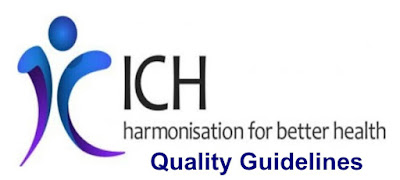Epidemiological surveys play a crucial role in research programs by providing valuable insights into the prevalence, incidence, risk factors, and natural history of diseases within the study population. These surveys help researchers design and conduct more effective clinical trials, understand the context of the diseases being studied, and interpret the trial results.
Consider a clinical trial for a new treatment targeting chronic obstructive pulmonary disease (COPD). Prior epidemiological surveys would have provided crucial insights into the prevalence and risk factors associated with COPD in the target population, aiding in the identification of eligible participants and setting appropriate inclusion criteria. These surveys might have revealed the natural history of COPD, including the progression of symptoms and potential exacerbating factors. Additionally, understanding the distribution of co-existing conditions such as smoking habits, environmental exposures, and comorbidities through epidemiological data could inform the randomization process in the clinical trial. Overall, the insights gained from epidemiological surveys would guide the design, execution, and interpretation of the COPD clinical trial, ensuring its relevance and applicability to the broader population affected by the disease.
Here are some key aspects of epidemiological surveys in the context of clinical trials:
- Baseline Data Collection:
- Prevalence and Incidence: Epidemiological surveys help determine the baseline prevalence (total number of cases in a population at a specific time) and incidence (rate of new cases occurring over a defined period) of the disease under investigation. This information helps to understand disease patterns and the expected disease prognosis. This information is essential for estimating the sample size needed for a clinical trial.
- Target Population Definition:
- Inclusion and Exclusion Criteria: Epidemiological surveys aid in identifying and defining the characteristics of the target population. This information is crucial for setting appropriate inclusion and exclusion criteria for the clinical trial that wishes to explore an intervention.
- Identification of Risk Factors:
- Understanding Disease Etiology: Epidemiological surveys contribute to understanding the risk factors associated with the disease. This knowledge helps researchers identify potential confounding variables and factors. These are then taken into consideration while designing clinical studies.
- Natural History of the Disease:
- Disease Progression and Outcomes: By studying the natural history of the disease, epidemiological surveys provide insights into disease progression, the variability of symptoms, and potential outcomes. This information is valuable in designing endpoints and defining outcome measures in clinical trials.
- Cohort Identification:
- Longitudinal Studies: Epidemiological surveys often involve longitudinal studies, tracking individuals over time. This longitudinal data can help identify suitable cohorts for clinical trials and facilitate the recruitment process.
- Randomized Controlled Trials (RCTs):
- Randomization Strategies: Knowledge gained from epidemiological surveys is a useful source of information to determine the randomization process in clinical trials. Understanding the distribution of risk factors allows for the development of balanced randomization strategies.
- Post-Trial Analysis:
- External Validity: Epidemiological surveys are valuable for assessing the external validity or generalizability of clinical trial They provide context for understanding how trial findings might apply to broader populations.
- Real-world Evidence (RWE):
- Complementing RCTs: Epidemiological surveys contribute to the generation of real-world evidence, complementing the controlled environment of clinical trials. This broader perspective can be especially relevant in assessing the effectiveness of interventions in diverse populations and settings.
In conclusion, epidemiological surveys play a pivotal role in clinical trials by providing essential insights into the prevalence, incidence, risk factors, and natural history of diseases within the society. The epidemiological surveys contribute to the understanding of disease etiology, progression, and outcomes, enhancing the overall validity and applicability of clinical trial results in real-world contexts.


